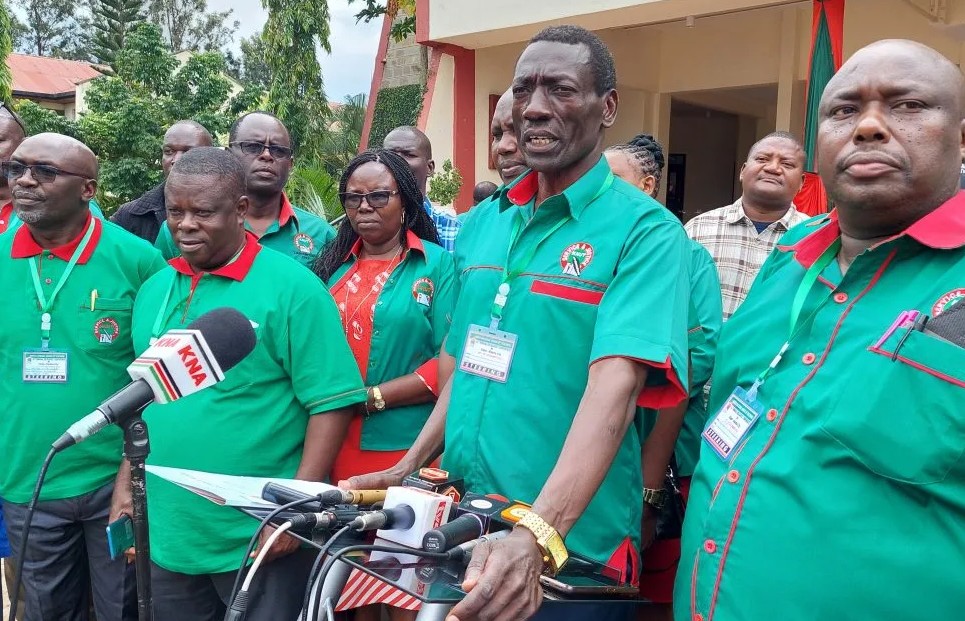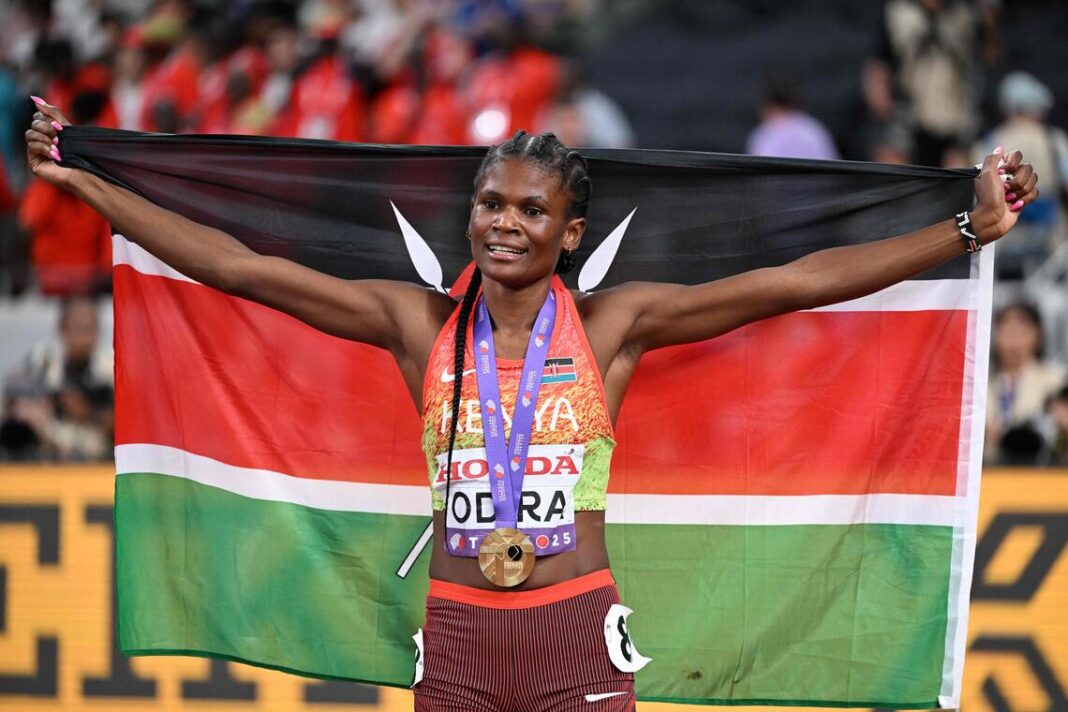The High Court has once again extended conservatory orders barring the Director of Public Prosecutions (DPP) and the Ethics and Anti-Corruption Commission (EACC) from arresting or prosecuting Kiambu Governor Kimani Wamatangi pending further directions.
Justice Chacha Mwita of the Constitutional and Human Rights Division in Nairobi extended the orders on Wednesday to December 10, when he will issue further guidance on the petition. The extension came after DPP counsel Henry Arochi requested more time to file submissions in the matter.
Governor Wamatangi moved to court seeking protection from an anticipated prosecution, saying he feared imminent arrest over graft allegations linked to companies under investigation. His lawyer, Stephen Ligunya, told the court that he had already filed and served submissions as directed earlier. EACC counsel Ms. Murugi confirmed receiving the documents but sought additional time to respond, citing health reasons.
“I am sorry to both the court and my colleagues for not having filed responses. I have been unwell and only resumed work this week. I ask for two days to file my responses,” she told the court. Justice Mwita granted both the DPP and the EACC 14 days to file their responses ahead of the December 10 hearing for highlighting of submissions. The EACC is investigating Governor Wamatangi over alleged links to firms suspected of involvement in corruption.
Arochi argued that Wamatangi had interests in the companies under probe, noting that similar issues had already been raised in another ongoing case.“If these cases proceed concurrently, this is likely to embarrass the court as decisions may be made differently,” Arochi said.
However, Ligunya dismissed the claims, insisting that the governor neither owns shares in the firms nor is he a party to the earlier petition.Justice Mwita pressed Arochi to clarify whether the parties in both petitions were the same. Arochi admitted they were not identical but maintained that the directors involved were similar and that the issues overlapped.
The judge noted that while the EACC had earlier sought to transfer the petitions to the Anti-Corruption and Economic Crimes Division, consolidation could only be considered if both matters were before the same court.He cautioned that parallel actions could lead to conflicting rulings and urged all parties to take steps to ensure the case proceeds without delay.
The matter will return to court on December 10, when further directions are expected.







paypal casino uk
References:
jskenglish.com
online pokies australia paypal
References:
http://www.cybersecurityhouse.com
Neospin was only formed in 2022, but it’s already become the ultimate safe online casino Australia has to offer.
MrPacho is the safest online casino in Australia if you’re looking to play pokies.
But since the team behind this online casino has a strong presence in the online gambling industry, it’s not that surprising.
This includes reputable software studios like BetSoft
and Microgaming, as well as Pragmatic Live if you’re into live casino
games. At the top of our list, we have Lunubet – a fully licensed online
casino with fast and secure payment methods that won us out with
its stunning welcome bonus and top-tier game variety.
Realz is the best overall fast withdrawal casino in Australia, thanks to its well-rounded platform that supports multiple fiat and crypto
withdrawal methods. So if you’re ready to play and get paid fast,
you’re in the right place. This is a question many first-time online
gamblers in Australia will ask.
Reading online casino reviews can help you choose the right casino for you.
In today’s mobile world, we make sure that the casinos we
review offer excellent mobile casino experiences. The online casino landscape is constantly evolving.
We leave no stone unturned in examining every aspect of the casinos we cover,
including game selection, promotions, and user experience.
We’re not here just to tell you about the best Australian online casino reviews,
but also to spill the beans on why you can trust us.
Learn how setting a limit can add to a better gambling experience.
Register your details to be in the know for our latest news
and offers. Located in the heart of Barangaroo, learn the different ways
to travel and park at Crown Sydney. Visit the Crown Rewards Desk located on Level 2 to become a member today or
you can start the process before your arrival through the Crown Resorts
App.
However, if you split your hand and receive an Ace
and a 10 value card, the cards count as 21 only, not Blackjack.
A Blackjack is when the first two cards dealt to you are an Ace
and a card with the value of ten. The object of the game is to beat the dealer by drawing cards with
a combined total closer to 21 than the dealer’s
cards. Booking direct gets you the lowest price every time.
Crown Casino Melbourne is the largest casino complex in the
Southern Hemisphere and is one of the biggest in the
world. Get your stay at Crown Towers off to a
luxurious start with an exclusive check-in experience at the Crystal Club.
References:
https://blackcoin.co/methspin-casino-real-money-online-pokies-australia/
Bond, das ist hier noch nicht der kontrollierte und elitäre Charmeur sondern einer
mit Stiernacken und Kurzhaarschnitt. Spätestens
hier sind wir ganz beim Menschen 007, wie ihn Erfinder Ian Fleming schuf.
Gegen Ende malträtiert ihm Le Chiffre sogar mit einem Tau die Genitalien, um an ein Passwort zu kommen. Wie dieser muss Bond allerhand einstecken, kommt
mit ordentlichen Schrammen davon. Gerade in der ersten Hälfte katapultiert der
Film mit zwei atemberaubend inszenierten Sequenzen Bond zurück an die Spitze des Actionkinos, das gerade ohne die
peinlichen Computer-Effekte des letzten 007-Films Die Another Day brilliert.
Zwar verläuft nicht alles nach Plan, doch als Bond auf eigene Faust weiter ermittelt, kommt er
auf die Spur von Le Chiffre, dem Bankier einer weltweit operierenden Terror-Organisation. Derzeit gibt es keine
kostenlosen Streaming-Optionen für James Bond Casino Royale.
144min – Deutsch, Spanisch, Ungarisch, Polnisch, Russisch, Tschechisch, Englisch,
Französisch, Italienisch
References:
https://online-spielhallen.de/beep-beep-casino-bonus-code-ihr-weg-zu-spannenden-vorteilen/